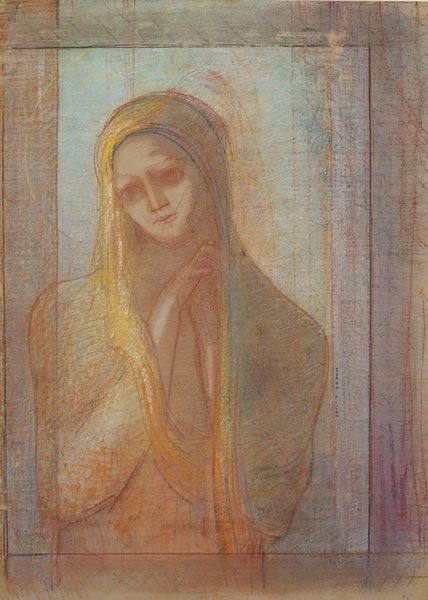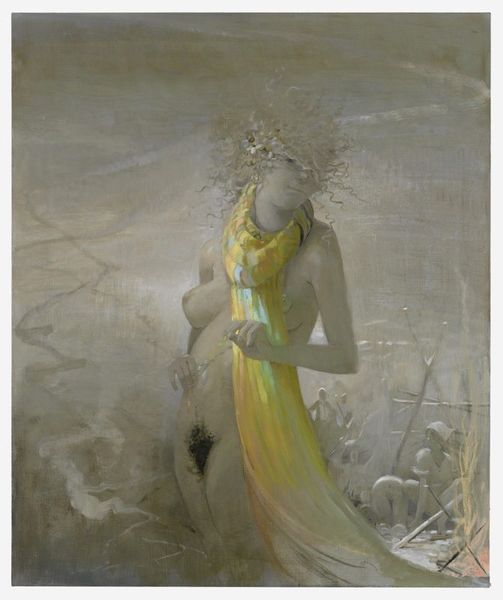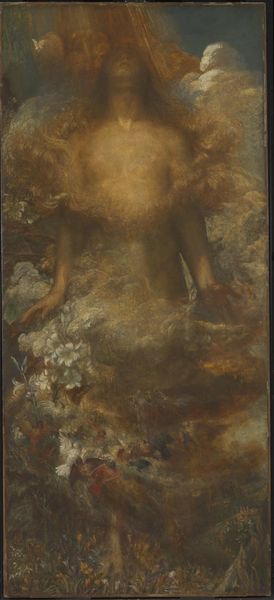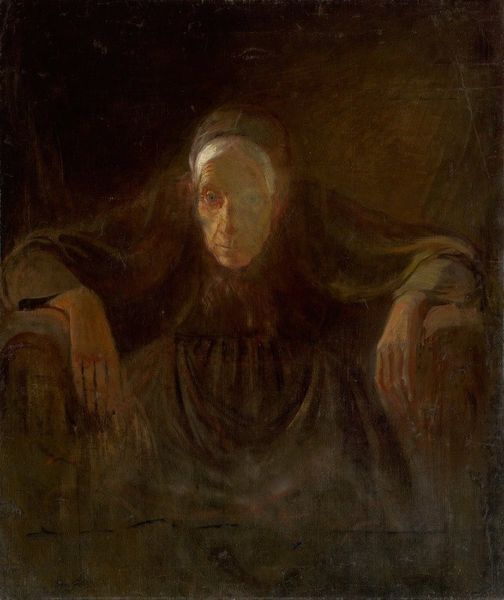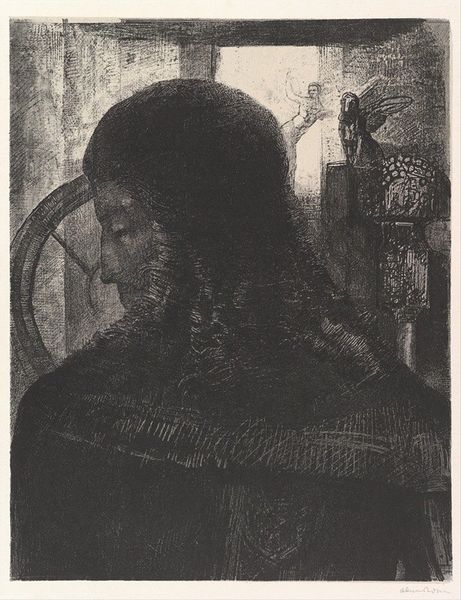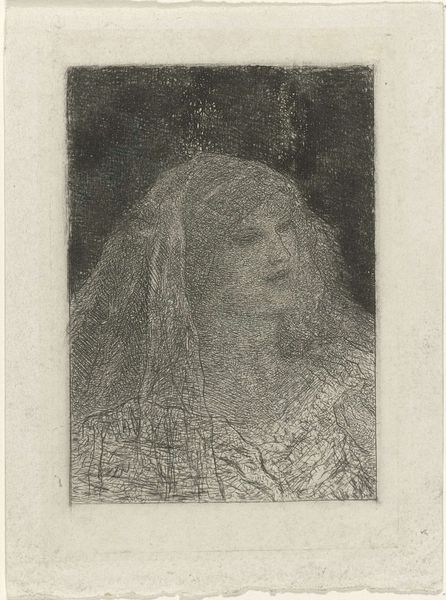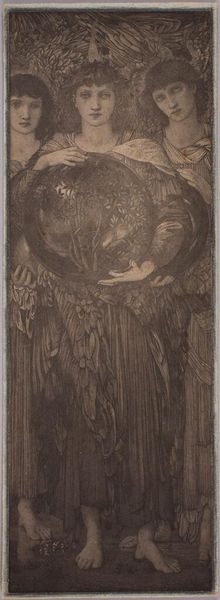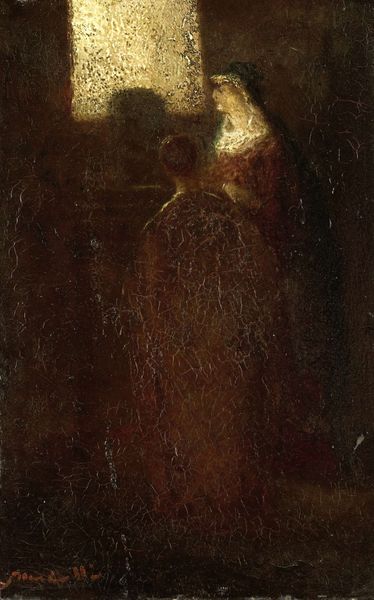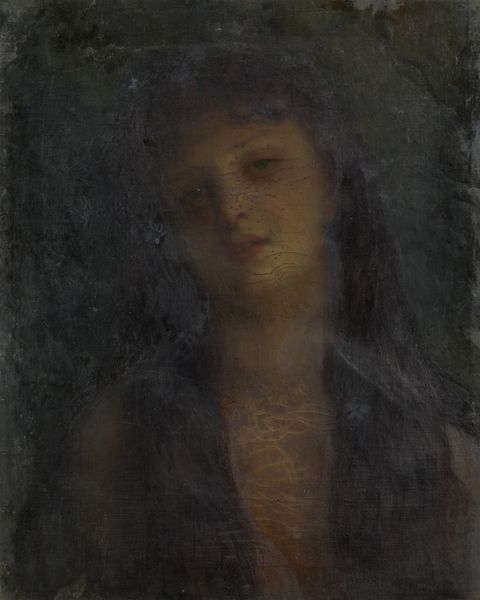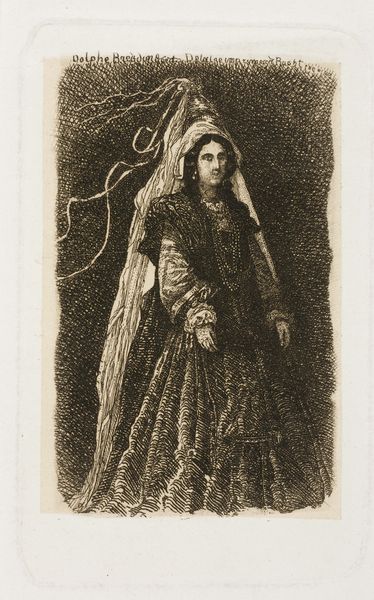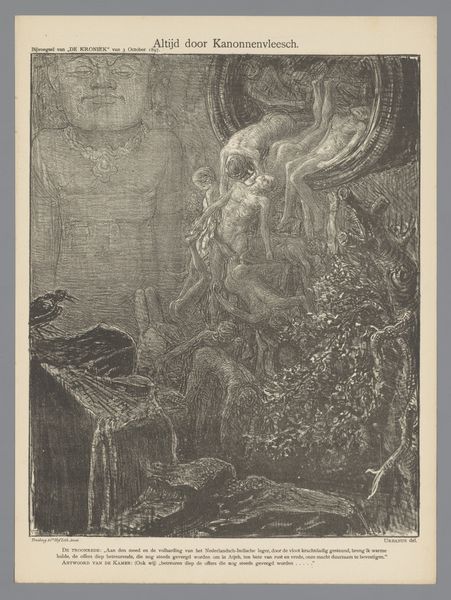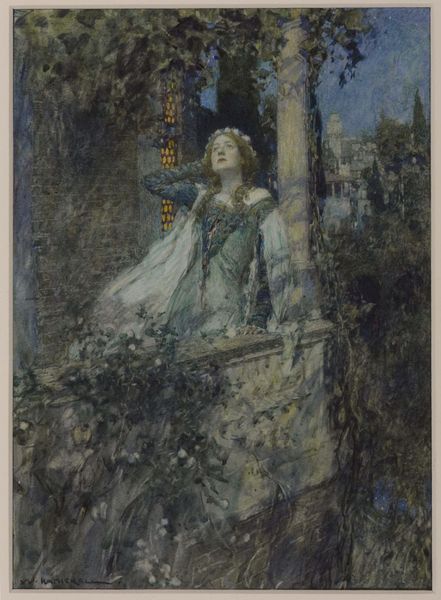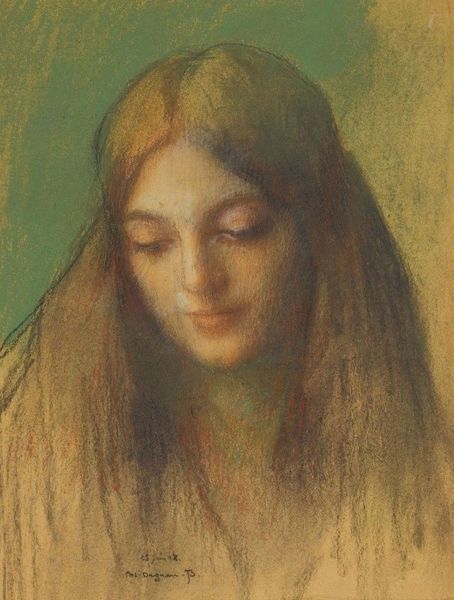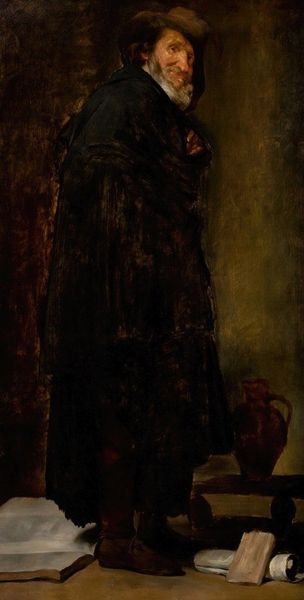
Dimensions: support: 1060 x 698 mm frame: 1390 x 1028 x 77 mm
Copyright: CC-BY-NC-ND 4.0 DEED, Photo: Tate
Editor: This is George Frederic Watts's "The Dweller in the Innermost," of indeterminate date, housed at the Tate. It’s striking how the feathered texture contrasts with the smoothness of the figure's face. What can you tell me about it? Curator: The material handling here speaks volumes. Look at the laborious layering of paint to achieve that ethereal glow. The muted palette, possibly dictated by available pigments, adds to its otherworldly feel. Editor: So, it's less about the symbolic meaning, and more about the physical act of creation? Curator: Precisely! Consider the means of production—the artist's hand, the quality of materials. This challenges the idea of divine inspiration by highlighting the artist's labor. Editor: I hadn't considered the limitations of the materials themselves shaping the artistic output. Curator: It recontextualizes the spiritual message, doesn’t it? We see the constraints and the deliberate choices made by Watts during its creation. Editor: It definitely gives me a new perspective on the piece and the artist's intentions. Thanks!
Comments
tate 9 months ago
⋮
http://www.tate.org.uk/art/artworks/watts-the-dweller-in-the-innermost-n01631
Join the conversation
Join millions of artists and users on Artera today and experience the ultimate creative platform.
tate 9 months ago
⋮
Watts described this painting in 1896 as ‘Conscience ... seated facing, within a glow of light; on her forehead she bears a shining star, and on her lap lie the arrows that pierce through all disguise, and the trumpet which proclaims truth to the world’. With its mystical and ethereal character, this is one of Watts’s most Symbolist works. He painted the imagery without the meaning of the work being fixed. It took him seven years, and the advice of his friends, to settle on a title. Gallery label, June 2021
